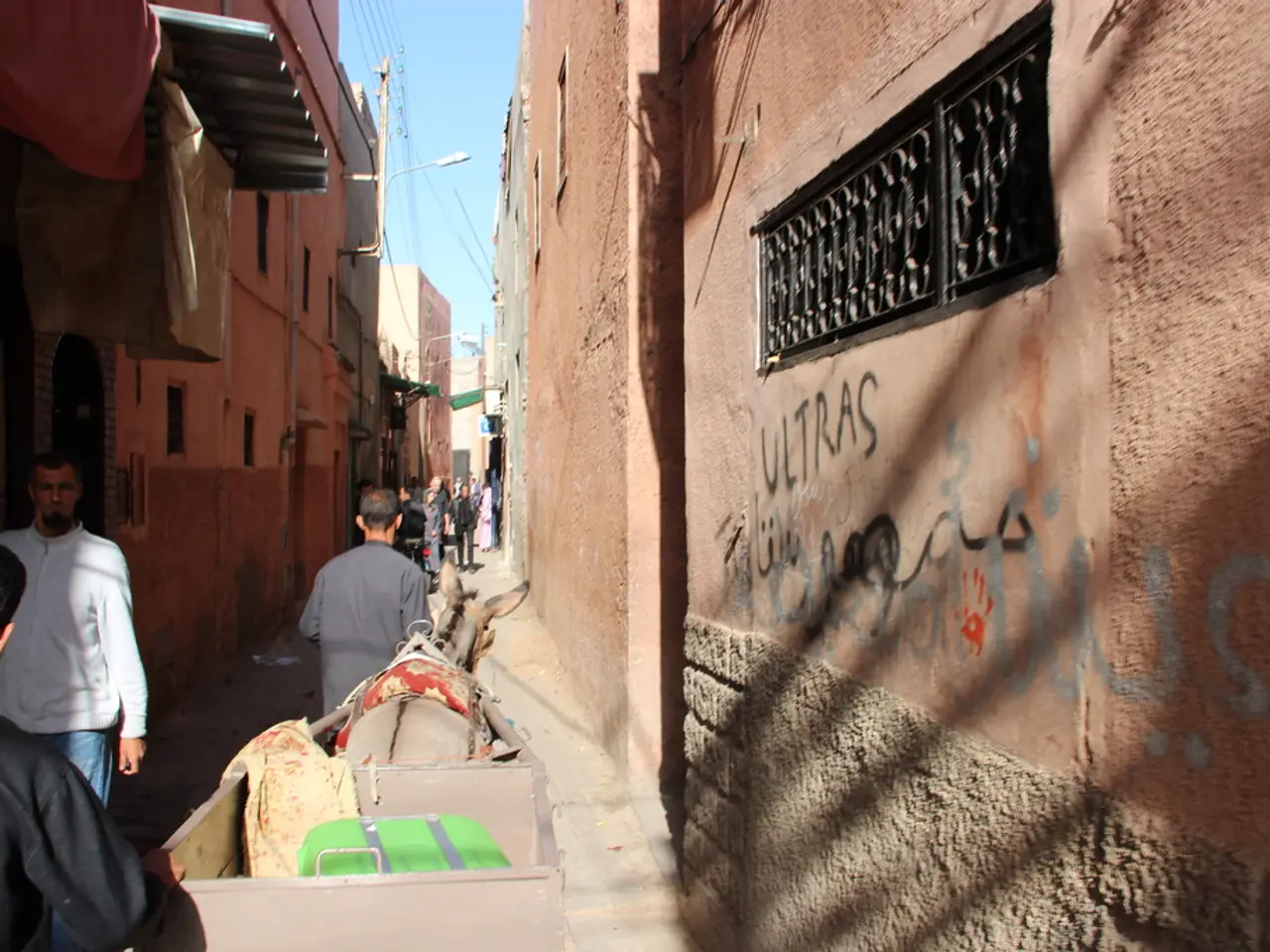European nations, including Portugal, criticize Israel's proposed annexation of Gaza City
In a united stance, the foreign ministers of Portugal, Spain, Iceland, Ireland, Luxembourg, Malta, Norway, Slovenia, and other European countries have issued a statement strongly condemning Israel's announced plan to occupy Gaza City [1][5]. This joint statement expresses grave concerns over the potential exacerbation of the humanitarian crisis, endangerment of hostages, and massive displacement of Palestinian civilians.
The signatory countries view Israel's plan to expand the war and occupy Gaza City as a serious violation of international law and humanitarian law [1]. They reject any demographic or territorial changes in the Occupied Palestinian Territory, emphasising that such actions obstruct the two-state solution, the only path toward just and lasting peace [1][4].
The occupation and intensification of military operations are seen as obstacles to peace and a threat to the Palestinian population, potentially leading to the forced displacement of nearly one million civilians [1]. To address these concerns, the countries have called for an immediate and permanent ceasefire, unhindered humanitarian access, and the release of hostages held by Hamas without delay [2][3][4].
The signatory countries reaffirm their support for a two-state solution, where Gaza remains an integral part of the State of Palestine, alongside the West Bank and East Jerusalem [1][2]. They warn that occupying the city of Gaza is a major obstacle to the implementation of the two-state solution.
In summary, these European nations strongly oppose Israel’s plan to occupy Gaza, citing humanitarian concerns, international law violations, and threats to peace prospects [1][5]. They advocate for ceasefire, humanitarian aid, and a negotiated political solution [2][3][4].
The signatory countries view Israel's plan to occupy Gaza City as a violation of international law and humanitarian law, rejecting any territorial changes in the Occupied Palestinian Territory [1]. In line with this, they advocate for a peaceful solution to the war-and-conflicts in the region, emphasizing politics centered around a two-state solution as the only path towards just and lasting peace [1][4].







